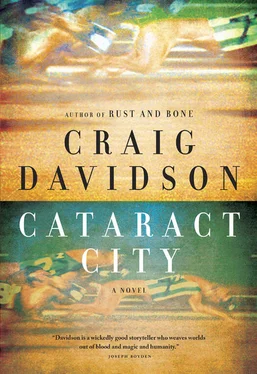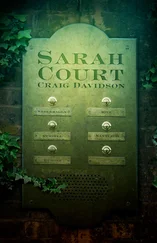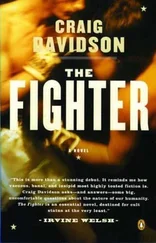Dunk knocked on the door with one grimed, blood-flecked hand. A middle-aged woman stood in the frame, light from the kitchen falling over her shoulders.
“It’s you,” she said. “The boys … those boys .”
She rocked forward. I thought she might faint. She opened the door. The warmth of the house hit me, almost melted me.
“They’ve been looking for you everywhere,” she said. “The police. Search teams. How did you …?”
“I’ll sit out here, ma’am,” Dunk said.
The woman nodded. “You do whatever you’d like. I’m going to … make a call. I’ve got blankets and — oh! Colin! ” she shouted. “It’s those boys!”
“Who?” came a man’s voice from inside.
“The boys on TV. The lost boys!”
“Jesus!”
I sat on the steps with Dunk. The porch light snapped on, so much harsher than the gilded light of the moon. Dunk shook his head slowly, smiling as you would at a joke that’s only half funny. His hands trembled and so did mine. I heard footsteps and craned my head to see a big man with one huge carpenter’s hand clapped over his mouth, watching us in awe.
Dunk cupped the baby bird, his features set in mute confusion. Its body looked as hard as soap. Dunk touched it gently with one finger. It rolled over weightlessly, like a thing carved from balsa wood.
Dunk’s head dipped to touch his knees. His body shook. Huge gulping sobs tore out of him, ripped out of his throat as if about to rupture his vocal cords, the most wretched noises I’d ever heard. I put my arm around his shoulders and felt the tension: it was like grasping a railroad track in advance of the onrushing locomotive. I didn’t tell him everything was okay, because I knew even then that it probably wasn’t. Not really, not ever again. I just let him cry.
“What the hell’s the matter?” the big man said. “You’re safe, boys.” A mystified, barking laugh. “Don’t you get it? You’re safe .”
There’s a photograph of me and Dunk taken shortly after we wandered out of those woods to find the house — which was owned by Irene and Colin Harrington, a third-grade teacher and a construction foreman with a taste for isolation. It was shot by a reporter with the Niagara Falls Review who arrived with the emergency crews, no doubt alerted by the police-band scanner in his newspaper’s bullpen. It’s a tight shot, just our shoulders and heads, and the composition is off balance — by then there was a crush of firemen and ambulance attendants, so the reporter had to fire off a hurried snapshot in the scrum.
We are captured in close-up, in black-and-white, which amplified the stark slashes of blood on our shirts and the scrapes on our faces. My eyes shine like headlamps in the black pits of my sockets. We look like we’ve been released from a concentration camp, wearing expressions of grim futility. That sort of hopelessness grits into your face and posture, becomes a visible part of you.
In the photo my hand is up, covering Dunk’s eyes. He was still crying. His head is tucked into the space where my shoulder meets my neck. The framing echoes something you’d see on the courthouse steps: a lawyer shielding his client from the hungering shutterbugs.
If you were to hypothesize about the events of those three lost days from that photo alone, you’d think it was me who dragged Dunk out of the woods. That I was the protector and he the protected. Which is why you should never trust photos to tell the entire story.
Our parents had arrived in police cruisers. They looked as haunted and haggard as we did. My mom gathered me in a bear hug that just about crushed the life out of me. Years later she got drunk at a cousin’s wedding and told me she’d have left my dad if we hadn’t been found. “I love your father, but I wouldn’t ever have forgiven him. Getting into some stupid fight while his son’s abducted. Celia Diggs would have done the same.”
“Found?” I remember saying, a little drunk myself. “Mom, nobody found us.”
Dad never spoke about that night outside the Memorial Arena when he’d punched Adam Lowery’s father, but his regret expressed itself in other ways. To this day he will grab my hand in busy parking lots, even though I’m old enough to have kids of my own. He will stare at our clasped fingers and shrug sheepishly, but he won’t let go. Which is okay by me.
We were taken to the hospital, where our guts were discovered to be full of worms. The doctor figured it was the raccoon meat. We were severely dehydrated and covered with more bites and stings than anyone could count. I was put on an IV drip and didn’t take a dump for a week. Nothing inside me.
Dunk and I were put in separate hospital rooms. At night I’d roll over in a dreamy fugue thinking I’d feel him next to me. I’d find nothing but the over-bleached hospital sheets like spun glass against my cheek.
I still see Mr. Hillicker and Mr. Lowery around. They haven’t aged well; eyelids drooping around their eyes like two sick hounds. I’d assumed they wouldn’t feel much guilt for what happened, and I was right. To this day I think they ought to be thankful it wasn’t Clyde and Adam who Mahoney decided to light out with. Not to brag, but odds are those two bastards would have ended up as clean-picked skeletons in a wolf den.
The police retraced our route from our hazy descriptions and the physical markers of our trek: a few blackened firepits. We’d covered over thirty-five kilometres, a twisting, doubling-back route that would shame any outdoorsman. Despite this, our scoutmaster claimed that we embodied the very pinnacle of wilderness survival.
We’d taken a wrong turn almost immediately. Had we gone east we’d have made it back to Stevensville Road by mid-afternoon. Instead we went northwest, into the forested territory fringing Old Highway 98 east of Bethel. But if we were unlucky early, we got lucky late. The Harrington house sat three kilometres from its nearest neighbour. Had Dunk not seen its roof we would have continued into the empty land south of Brookfield junction. Nothing there but scrub pine and desolation, fifty miles to the nearest anything.
The wilderness took its toll on Bruiser Mahoney, too. The police found him where we’d left him, in a clearing some thirty miles north of Lake Erie. Through Sam Bovine I heard that his legs had been chewed off. Coyotes were the likeliest culprit.
“My dad used old mannequin legs from the women’s wear department at Sears to fill out the casket,” Bovine told me.
The rock on Mahoney’s stomach may’ve been all that stopped the coyotes from making off with the rest of him. Or it could be that his taste didn’t suit them.
The toxicologist said he’d died from an overdose of Clozaril, a knock-off of clozapine, an antipsychotic drug. The pills belonged to El Phantoma — birth name: Miguel Lopez — a Mexican wrestler with a history of bipolar disorder whom Mahoney had driven to a match in Gravenhurst the week before. Lopez had forgotten the pills in the glovebox and Mahoney had mistaken them for his pain medication. The Clozaril reacted badly with the alcohol to cause, in the toxicologist’s opinion, “free-floating delusions, uncontrollable anxiety and a possible psychotic break with reality.”
All of which seems about right to me.
Dunk and I went to Dade Rathburn’s funeral. People figured it was some kind of Stockholm syndrome, or else we wanted to spit on the corpse. The big church was mostly empty. The girl was there, the one with the black hair and gold-coin eyes. It turned out she was Rathburn’s daughter — one of many. He’d salted his seed liberally over his territory. She was crying. She hugged us both and apologized. “I said you’d be safe with him. I thought you would be. He wasn’t a bad …”
Читать дальше












